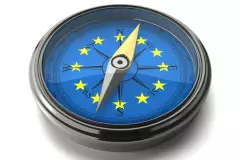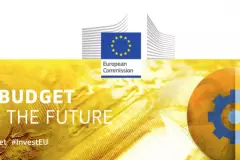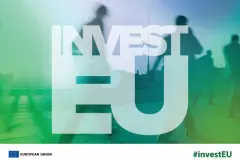Multiannual Financial Framework 2021-2027: What’s New?
We waited long, but the new EU Budget for 2021-2027 is now out and available for the public. The budget is set to be €1824.3 billion, and this is a combination of the Multiannual Financial Framework (MFF) and the Next Generation EU. The early draft of the MFF had to be adjusted in light of the COVID-19 pandemic, hence in this article we will address all changes partaking the EU's recovery effort. For the draft of the EU budget, check our article about the Making of the MFF 2021 – 2027.
How much is the new budget for the new MFF EU?
and together with the fund called Next Generation EU (set at €750 billion) forms the new EU Budget. Now that we know the numbers, we need to ask ourselves where does this money go? Or rather, what are the EU funding opportunities opening up for us?
What will the recovery plan entail for the new EU Budget?
What are the goals of the new EU recovery fund?
By the end of 2024, the Next Generation EU should have absolved its goal: dealing with the crisis caused by the pandemic. Which means that the EU recovery fund will focus on creating jobs and solve the consequences of the COVID-19 pandemic, all under a green and digital approach. All efforts will be concerted towards a more modern and eco-friendlier Europe.
In fact, at a first glance it is clear that the EU´s intention is to use the pandemic recovery fund to speed up those topics that have been at the very centre of EU debate in the last years: a greener and more digital growth.
It is our shared belief, that a more sustainable European Union is also a more resilient one.
Which programmes will benefit from the recovery fund?
It is by now clear that the recovery fund should be spent through existing programmes, hence by increasing already existing budgets and not by creating new EU programmes. The EU programmes that could benefit from the Next Generation EU are:
- Recovery and Resilience Facility: €672.5 billion (loans: €360 billion, grants: €312.5 billion)
- ReactEU: €47.5 billion
- Horizon Europe: €5 billion
- InvestEU: €5.6 billion
- Rural Development: €7.5 billion
- Just Transition Fund (JTF): €10 billion
- RescEU: €1.9 billion
Financing under the Next Generation EU
The usual European programmes will continue to exist and benefit from the EU budget 2021-2027. But how will the EU distribute the funds? Let’s look at the EU Budget under the two afore-mentioned goals:
A more sustainable Europe
EU leaders agreed that 30% of the budget goes to climate-related projects. What does that mean?
It means that every EU programme has to strive to invest roughly 30% of its funding into projects tackling climate related issues. Every single programme has an individual rate, some aiming higher, some initially aiming lower and only building up the percentage over the next 7 years.
What else?
- The European Innovation Fund, related to the Emission Trading Scheme (ETS), is expected to receive up to 10 billion euros for its goal to reduce emissions.
- The LIFE programme, the only dedicated climate related programme of the EU is perfectly in line with most of the priorities of the "Green Deal". It will support the transition to clean energy, a circular economy, biodiversity protection, adaptation to climate change and much more. For this reason, it will benefit from a budget increase from 3.5 to 5.45 billion euros.
A more digital Europe
- Horizon Europe, the successor to Horizon 2020 will remain the largest Research Framework Programme in the world, having its budget increased to nearly 85 billion euros. Large parts of the new programme structure are built to work towards a more green and better digitalized world. This will mainly be achieved through the numerous synergies with other programmes, like Digital Europe, ESF+ or LIFE that Horizon Europe is going to work towards to. While only officially having five main missions, its impressive catalogue looks to be tackling nearly every issue imaginable, while also supporting the start-ups through the European Innovation Council (EIC).
- Finally, the new and long-awaited Digital Europe programme (DEP) will facilitate the wider use of digital technologies. This programme will promote supercomputing, artificial intelligence (AI), cybersecurity, advanced digital skills and digital innovation centres. Its budget of 6.7 billion euros is extremely impressive for a first-time programme, especially considering that the projects funded under DEP are going to be heavily supported through synergies with other EU initiatives. Nonetheless, many had hoped for more, saying that the commission is missing an opportunity to indicate a clear direction for the future and to establish itself as a world leader of digitalization.
An eco-friendlier and more tech-advanced Europe
Here the programmes that fall in between the two goals:
A total budget of 21.4 billion euros will go to the Connecting Europe Facility. It is a financial programme that aims at the European regulations' convergence in Energy, Transport, and the Digital Single Market, cooperating heavily with Horizon Europe, InvestEU and Digital Europe.
Where does the rest of the money go?
The ERASMUS+ programmes are receiving a great boost for the coming funding period. Although there have been disagreements between the institutions, particularly the EU Parliament and the member states, the budget is expected to increase from 14 billion euros to 24.57 billion euros. However, this is significantly below the master expectations for the ERASMUS+ programmes, set by the EU Parliament. Nevertheless, it will be enough to finance the novelties in the new programme, like the youth travel fund discover EU and the European Universities initiative. On top of that, with 2025 as the deadline for the final draft of an all-encompassing European education area, developed by the ERASMUS+ programme, the expectations for this funding period are extremely high.
In a nutshell…
The EU budget 2021-2027 will be significantly larger than the previous financing year due to the COVID-19 pandemic. This recovery plan that will add €750 billion to the existing EU programmes poses an excellent opportunity for all interested parties in the upcoming years.
The 2021-2027 EU budget will receive significant re-prioritisations in the fields of climate adaptation and digitalization. For the purpose of defying Brexit and the Corona crisis, the seven-year EU budget will be increased substantially, precisely to a total of 1.085 billion euros. With the Recovery Plan on top, adding €750 billion to existing EU programmes, it represents an excellent opportunity for all interested parties in the upcoming years.
Next multiannual financial framework and recovery package: Council moves to finalise adoption
What can you do now?
There is a lot of fresh EU funding to be applied for and won, if you prepare for the new calls before your competition. The new platform for EU funding Funds-Navigator will help you step by step on the way through the new programmes, regulations and opportunities. In your search for the right call for proposals and the right partner for your projects, you can count on us to always have the latest information at hand to keep you a nose ahead of the competition. Bring your ideas to us and become a project partner or start a consortium yourself.








